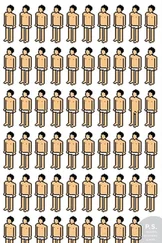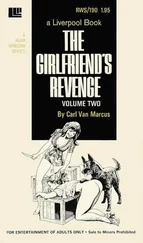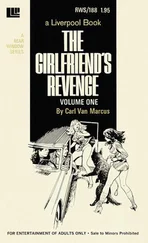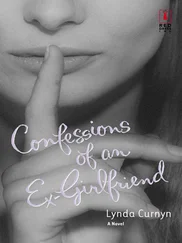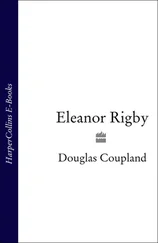The path twists; trees that fell during last year's storms confuse her memory of the trails. Suddenly, there's a stream where there ought to have been soil and ferns where there ought to have been stone. Wendy falls to her knees—she is beyond tired. She can't even begin to count the hours she has been awake. A half-formulated idea flits within her mind: She will build a nest of ferns to keep her warm until daybreak. This is only a foolish child's dream. She knows it.
She cuts her knee on a burl. She reaches down to hold the cut when in her peripheral vision she sees a pale yellow haze of light float downfrom the treetops, a shape and shade of green and gold, steadily falling down, down, down. She pivots her head to watch the light's steady downward sweep, steady and smooth like a glass elevator. It stops.
"Hello, Wendy." It's Jared, standing before her, impossibly young, unchanged from the sunny day he threw a football to a startled Wendy eating lunch alone in the bleachers.
"Jared? Sweetie? Is that you?"
The light that is Jared holds his finger to his lips and shushes Wendy. He extends his hand and Wendy clasps its lightness—there is no actual touch sensation, yet suddenly she is warm. This is all she'd ever wanted.
She says, "Jared, I've missed you so much. I've—we've all—" She begins to blubber. "I loved you and I miss you and the world has never been the same since you left. And now I'm lost and I'm frightened and the world seems to be closing down and dying. I'm a doctor now—I was at the hospital today. Oh Wendy, stop being so emotional."
Jared kisses his fingers, flicks the kiss at Wendy, smiles, and makes a wanking off gesture. He nods his head to indicate that Wendy should follow. His long curly hair doesn't jiggle as his head moves. Wendy follows him, lit by his body's gentle sulfur color. Wendy's feet squelch in mud patches and her cheeks burn red, thwacked by damp salmonberry twigs. They wind through unfamiliar paths, and they reach a straightaway that Wendy recognizes. Jared stops. He moves his eyebrows the way he did two decades previously to indicate that he's leaving.
"You're leaving? No. Jared—no. Don't go. Please stay with me. Talk. I missed you so much. You were all I ever wanted. It's only half a world without you."
But Jared gently pulls away his hand and walks back three paces. He smiles and melts downward into the soil like a peg in a hole.
Wendy is left behind. She grabs a small stone at the point where
Jared's head left the path and crushes it so hard in her palm that her skin bleeds. For years, Wendy had thought the world was fine andcomplete—that she could make do with what she had worked for and with what life had handed her. Now she knows this has never been true.
She arrives out onto the unlit street and sees her own house unlit, but decides not go there. She sees candlelight down the road at Karen's, so she walks that way. Once inside, she looks around at the familiar faces lit by the flames. She says to them, "I'm going to sleep. I'm not tired—not that kind of tired—I'm exhausted." She tumbles into a warm clump on the couch. Linus places a mohair blanket over her, and Wendy flinches at his touch.
"The Queen is dead."
"Go on," Richard says.
Karen continues: "The two princes are wearing blackout sunglasses. The Queen's body is being lowered into a grave. Only a few people are looking through the palace fence. It's dark out—and raining. The grave is all muddy."
Silence.
"Karen, do you really have to wear that paper bag over your head?"
"It's not just one paper bag, Richard, it's three bags. I can't see my visions properly if there's even one speck of light hitting my face. Even candlelight. It's a recognized paranormal fact."
"You look like a joke wearing it."
"Yeah, a real triple-bagger, Richard."
"Richard," Hamilton says, "could you please shut up? Let Karen speak."
"Hamilton, stop being an alpha male for just one second and let Karen alone."
"Hey, Wendy, excuse me for being so interested in what is decidedly one great big dung heap of a situation. I thought you were asleep."
"I'm not going to sleep through this situation no matter how tired I am."
"He's right, Wen," Pam says, "this is an extremely not good situation. "
''''Quiet, everybody. If you want me to tell you what I can see, then be quiet. Could you all put your personalities on hold for just two minutes?"
Karen is trying to describe the collapse of the world to her friends, who are masking their fear with funeral giggles—a protective, ironic coating. "Okay. Let me see—Pam, did I just hear you yawn?"
Pam jumps: "Yawn? No! Tired? Not at all." The group is petrified of yawning, physical comfort, and anything that might make them restful or sleepy. Their coffee is strong.
"Karen," Hamilton says, "do you have a little list of who makes it and who doesn't?"
"You're being facetious, Hamilton. I don't have a list. And I don't know where my information comes from."
"Hmmm. I think Mr. Liver needs a drink."
"Can we get on with this?" Richard asks.
"Richard, please remove the paper bags from my head. I don't know if this is a good time for me to trance. You people have to stop thinking I have this huge Scoreboard in my head with constant information spewing out that I'm not telling you. It's not like that. I tell you facts whenever I can."
The rooms goes silent. "I need a break. Linus, can you turn on the generator again? Let's scan the radio and watch that CNN tape again."Linus activates the Honda generator and Karen's house on Rabbit Lane regains electric light. The radio squawks out only predictable news: Every human activity has shut down—hospitals, dams, the military, malls. All machines are turned off. Once again, they watch the CNN VHS tapes Karen recorded earlier that afternoon before the power failed. The tape plays and again Pam and Hamilton blanch as they see the images they witnessed in stereo last Halloween play themselves out on screen: Dallas; India; Florida … They have no idea what to make of them.
Sleep that night is dodgy. Helicopters buzz the trees; a military jet strafes the mountain then crashes somewhere down near Park Royal. Blankets and duvets are brought downstairs and the fire is stoked and everybody camps there. Unspoken is the agreement to not display fear. Yet in spite of the fear, Richard is excited by the fantastic changes of the day. They all are. Richard remembers a few years ago on the Port Mann bridge where he witnessed a five-car pileup coming the other way—that same combination of being special and thrilled. He remembers being the only child in his third-grade class not to get a flu one year.
Before lights out, Linus asks for helpers to collect water samples to check with the Geiger counter. Shadows of neighbors can be seen walking out in the rain while the quacking sound of ostriches can be heard down the block.
Karen remembers the exact point of the day when the Great Change began. She'd been sitting alone in the TV room waiting for the noon news rotation on CNN. She was feeling partially angry, restless, and bored, as well as somewhat silly over telling Richard not to go to California.
"Karen, stop beating yourself up over this," Richard had said during one of the many arguments on the subject. "Nothing's going to happen. If I don't go to Los Angeles, then I'm just enabling your paranoia."
"Huh?" Karen remembered that modern people occasionally lapse into a strange jargon of emotional claptrap and hooey. "Richard, I'm only telling you what I saw and heard in my heart.""Please, Karen, don't make this any harder—please."
And so Richard went to Los Angeles. Lois had gone out shopping and George was down at the auto shop; Megan was out with Jenny; and the gang were all out in the world on the one day she knew they oughtn't be.
Читать дальше

